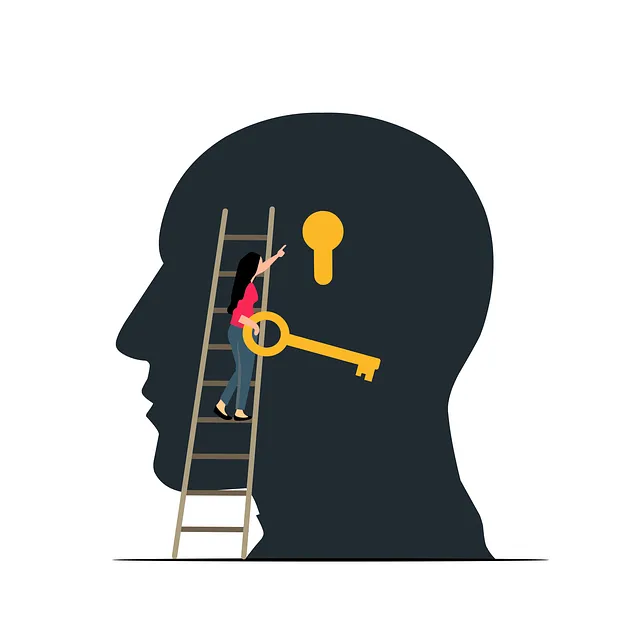Cultural sensitivity in mental healthcare is vital for providing respectful, effective care to diverse communities, addressing stigma, language barriers and differing belief systems. Lafayette Kaiser Permanente's psychiatry services require cultural competence, understanding unique backgrounds, and tailored support through training, patient-centered approaches, self-care routines, and crisis interventions informed by cultural awareness. Contacting the Lafayette Kaiser Permanente psychiatry phone number can access more information on these inclusive care practices.
Cultural sensitivity is a cornerstone of effective mental healthcare, ensuring that services are accessible and beneficial to all. This article explores the nuances of cultural sensitivity within psychiatric practice, particularly highlighting the importance for providers in the context of Lafayette Kaiser Permanente’s commitment to diverse communities. We’ll delve into the challenges facing culturally competent care, offer strategies for integration, and discuss how these principles can be applied to improve patient outcomes, as evidenced by successful models like the Lafayette Kaiser Permanente psychiatry phone service.
- Understanding Cultural Sensitivity in Mental Healthcare
- Challenges and Barriers to Culturally Competent Care
- Strategies for Integrating Cultural Sensitivity in Psychiatric Practice
Understanding Cultural Sensitivity in Mental Healthcare

Cultural sensitivity in mental healthcare involves understanding and respecting the diverse beliefs, values, and practices of individuals from various cultural backgrounds. It’s more than just treating patients from different cultures; it’s about creating an environment where everyone feels seen, heard, and valued. This is particularly relevant when considering the Lafayette Kaiser Permanente psychiatry phone number, as access to culturally sensitive care can significantly impact patient outcomes.
In the realm of mental healthcare, cultural sensitivity encompasses recognizing and addressing systemic barriers that may prevent certain communities from receiving adequate support. For instance, Burnout Prevention Strategies for Healthcare Providers often emphasize the importance of cultural competence in combating stress and fatigue. Additionally, Mental Health Policy Analysis and Advocacy plays a crucial role in ensuring policies reflect and promote the needs of diverse populations, fostering an inclusive system. Even Self-Esteem Improvement initiatives can be enriched by considering cultural contexts, as experiences and expressions of self-worth vary across cultures.
Challenges and Barriers to Culturally Competent Care

Navigating cultural sensitivity in mental healthcare presents a multitude of challenges and barriers that professionals must be aware of. One significant hurdle is the pervasive mental illness stigma, deeply rooted in various communities, which often discourages individuals from seeking help. This stigma can be exacerbated by language and communication differences, as well as variations in beliefs and values among diverse patient populations. For instance, Lafayette Kaiser Permanente psychiatry services might encounter patients from non-Western backgrounds where expressing emotions openly is not culturally acceptable, making it a delicate task for mental health professionals to establish trust and facilitate the emotional healing processes.
Additionally, risk management planning for mental health professionals plays a crucial role in ensuring safe and competent care. Understanding cultural contexts is essential in mitigating potential risks during therapy sessions. Mental illness stigma reduction efforts are vital to creating an inclusive environment where patients feel comfortable discussing their experiences without fear of judgment or discrimination. By addressing these challenges proactively, healthcare providers can offer more effective support tailored to each patient’s unique background and needs.
Strategies for Integrating Cultural Sensitivity in Psychiatric Practice

Integrating cultural sensitivity into psychiatric practice involves a multifaceted approach that starts with thorough training and education. Professionals at Lafayette Kaiser Permanente psychiatry services should be equipped with knowledge about diverse cultural beliefs, values, and practices related to mental health. This includes understanding the impact of socio-economic factors, historical trauma, and acculturation experiences on an individual’s mental well-being. By fostering a culture of empathy and awareness, mental healthcare providers can create safer and more inclusive spaces for patients from various backgrounds.
Effective strategies include adopting a patient-centered approach where cultural context is actively considered during assessment and treatment planning. Incorporating self-care routine development for better mental health and resilience building techniques tailored to individual needs can significantly enhance therapeutic outcomes. Additionally, Crisis Intervention Guidance should be culturally informed, ensuring that interventions are respectful and relevant to the patient’s cultural identity, thereby fostering trust and encouraging open communication.
Cultural sensitivity is a vital aspect of mental healthcare, ensuring effective treatment and support for patients from diverse backgrounds. By addressing challenges like language barriers and stereotyping, and implementing strategies such as cultural assessments and training, Lafayette Kaiser Permanente’s psychiatry services can enhance patient outcomes. Remember that a culturally competent approach not only benefits individuals but also contributes to a more inclusive and equitable healthcare system, making it a critical focus for mental health professionals. For those seeking expert care, the Lafayette Kaiser Permanente psychiatry phone number provides access to specialized support tailored to these needs.

